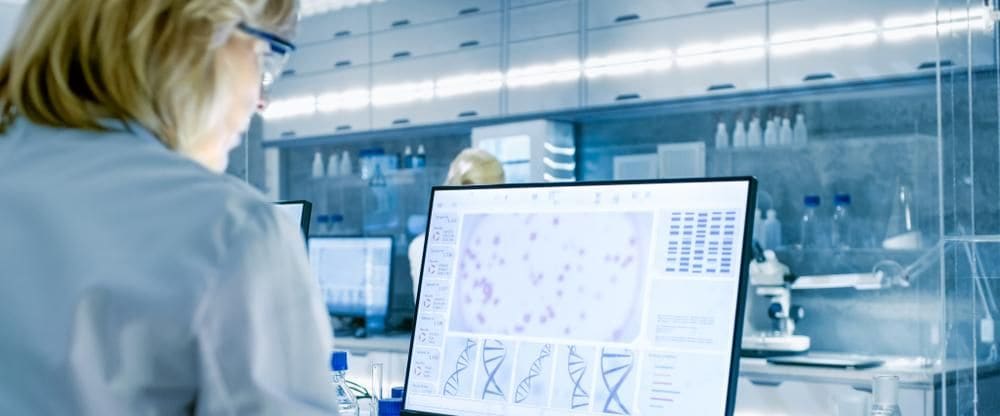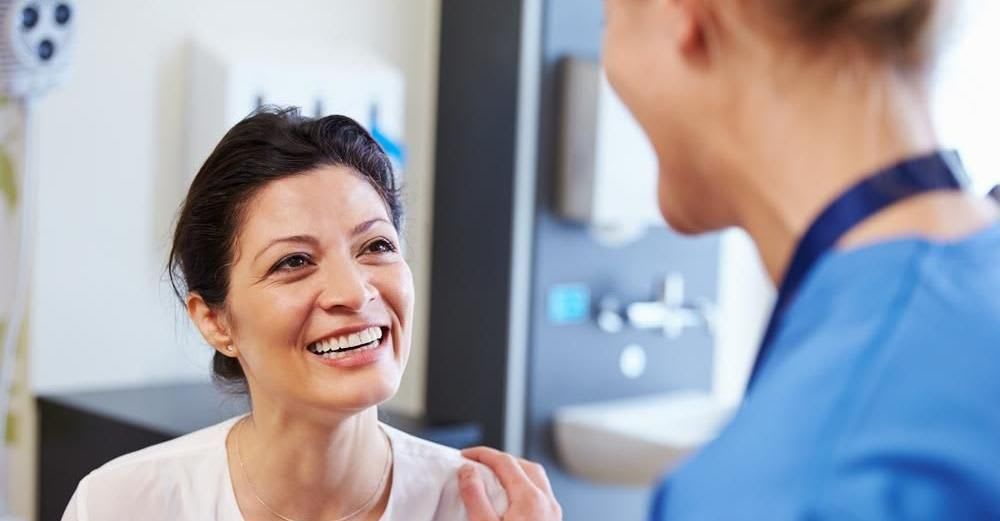Everything You Need to Know About Predictive Healthcare
For years, banks have been using information about customers to predict financial risks and recommend investment strategies. Big data has clear applications in the financial sector, but its use is not limited to economics. Big data is all over the healthcare industry, where it's emerging as 'predictive medicine'. Here is what medical students need to know about predictive medicine, medical statistics, and big data in healthcare.
- Education

For years, banks have been using information about customers to predict financial risks and recommend investment strategies. Big data has clear applications in the financial sector, but its use is not limited to economics. Big data is all over the healthcare industry, where it is emerging as "predictive medicine." Here's what medical students need to know about predictive medicine, medical statistics, and big data in healthcare.
According to Nature, “Predictive medicine is a branch of medicine that aims to identify patients at risk of developing a disease, thereby enabling either prevention or early treatment of that disease. Either single or more commonly multiple analyses are used to identify markers of future disposition to a disease.”
In layman’s terms, it’s the practice of medicine that relies on the analysis of large quantities of data to help physicians make predictions about a patient’s likelihood of getting a disease.
The Harvard Business Review explains it this way:
“Predictive tools are helping providers — both doctors’ groups and hospitals — assess patients’ risk of contracting a whole host of diseases and conditions. They can come up with individualized regimens by tapping into electronic medical records to identify the types of patients who are most likely to respond to a particular type of therapy. They can pinpoint treatments that sustain health in a more precise way than ever before. And they can identify individuals who are likely to stop benefiting from a specific regimen at a given time. For the volume-to-value paradigm shift in health care, predictive analytics, though rarely visible, is the essential enabler.”
It’s not just helpful for individuals, either. Predictive analytics has the potential to aid doctors, policy-makers, and public health experts in making decisions that affect individuals and entire populations.
What does that mean for medical students? It means that as a doctor healthcare worker, you will likely use predictive analytics whether you are aware of it or not. Here are a few things you need to know about predictive medicine as a newly-minted or about-to-be-newly-minted doctor...
1. It starts with genetic tests
Predictive medicine relates to genomic medicine because it uses genetic tests to determine a person’s probability of developing a given disease. Experts study biomarkers that are linked to illnesses and diseases and analyze large quantities of data.
To be clear: predictive medicine is based on lots of genetic tests from lots of people. In October 2018, Nature published research from Sekar Kathiresan, a geneticist at Massachusetts General Hospital in Boston, who looked at 6.6 million spots on the human genome to calculate a person’s risk of developing coronary artery disease. Kathiresan and his team then used their findings to develop a polygenic risk score that could be applied to patients based on their individual genetic markers.
While the approach shows clear potential as a way to identify high-risk groups or individuals, experts caution that including too many variables could undermine credibility in this type of analysis. Still, as reported in Nature, researchers like Samuli Ripatti at the University of Helsinki have found using polygenic risk scores in conjunction with traditional risk assessments can help doctors identify patients most at risk for developing diseases. Polygenic risk scores can also improve the efficacy of screening tests, like those for breast cancer.
2. It uses lots of different types of data
Predictive medicine does not just use genetic data, although genetic data remains the cornerstone of the field. Predictive analytics also accounts for past treatment outcomes, the latest research in peer-reviewed medical journals, and hospital admission and re-admission rates.
Here’s the really interesting part: predictive medicine uses artificial intelligence, which generates its own data sets. According to Elsevier, predictive medicine uses “artificial intelligence to create a prediction profile (algorithm) from past individuals. The model is then "deployed" so that a new individual can get a prediction instantly for whatever the need is, whether a bank loan or an accurate diagnosis.”
3. It could revolutionize healthcare
With all of the data analysis that predictive medicine requires, there is an incredible opportunity for the healthcare industry to improve the overall accuracy of diagnoses, aid in preventative medicine, and reduce healthcare costs.
How can doctors make more accurate diagnoses? By using multiple algorithms informed by predictive medical research.
Here’s a quick example: a patient goes to see their longtime doctor for chest pain. Should the patient be hospitalized? If the doctor can enter the patient’s answers into a reliable, predictive algorithm, then the doctor can gain a clearer insight into the patient’s needs. That algorithm would include work history, history of chest pain, other symptoms, and the results of any other predictive markers in the patient’s data set, including the likelihood of heart disease. Here, predictive medicine could confirm or deny a doctor’s hunches and help them make informed decisions about care.
Predictive medicine can also assist with prevention and public health by allowing doctors to offer more early intervention strategies. According to Elsevier, “Predictive analytics, particularly within the realm of genomics, will allow primary care physicians to identify at-risk patients within their practice.”
In terms of healthcare costs, in time predictive medicine will have enough algorithms to allow doctors and hospitals to give insurance companies predictions on the numbers and types of cases they will see in a year’s time. Over time, these predictions will increase in accuracy and will potentially be able to save insurance companies -- and individuals -- lots of money.
4. Ethical issues to consider
One big question looms large: who has access to a person’s genetic profile and who is responsible for it? Should governments be in charge of a person’s genetic data? Employers? Insurance companies? The individual? As with any new development in healthcare, medical ethics must be considered when collecting genetic data and applying the findings of polygenic risk scores to patient care. When it comes to your genetic data, there are lots of ethical issues to consider.
Genetic testing -- the cornerstone of predictive medicine -- is not always accurate. At a minimum, genetic tests do not always give the most complete picture of the patient and genes are not the only factors responsible for illnesses. Researchers acknowledge that there are other factors, such as environment, lifestyle, and work history, that play a significant role in patient health and the development of different diseases. As the field progresses, researchers and medical practitioners will need to consider other, complementary tools and the validity of genetic testing.
There are social issues, too, to consider. With pre-existing conditions already complicating healthcare provisions, there is legitimate concern that individuals with negative genetic predictors for certain diseases could face discrimination. As the medical sector incorporates more predictive strategies into diagnostics and care, data protection will be paramount and rules protecting individuals from discrimination based on genetic predictions established. The medical profession of the future will be closely tied to politics, ethics, data protection, and law, bringing lots of opportunities for cross-disciplinary studies and careers.
Your takeaway
As Prof. Ran Balicer, MD, PhD, MPH, founding director of the Clalit Research Institute and advisor at the World Health Organization, said in an article in Forbes last year, “The path is clear. Slowly but steadily, the age of relying blindly on human clinical intuition is coming to an end, to be replaced by algorithmic predictive care. It is the human touch and the empathic tailoring of these recommendations to the individual patient's preferences and needs that will be the hallmarks of great physicians in this era.”
There are many aspects of predictive medicine that still need development. This makes it both an exciting field for medical students to explore and a subject that deserves increased awareness. Doctors, hospital staff, and medical professionals have access to large quantities of data. As a medical student or resident physician, what can you do with this valuable information? Use it wisely and continue to uphold that essential medical maxim -- first, do no harm.
Find a program in these categories
Read related articles

What You Should Know If You Want To Practice Medicine Abroad

Five Countries to Choose for Nursing Degrees
